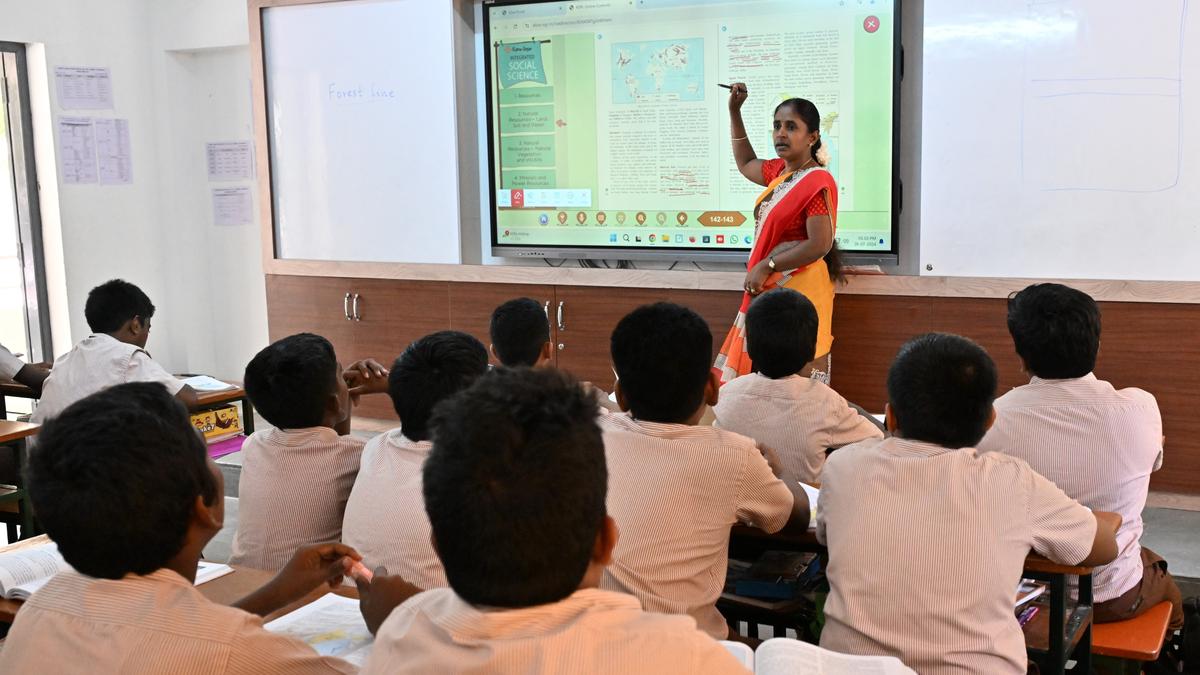Smart Cities Mission (SCM)

- 31 Dec 2024
In News:
The introduction of smart classrooms as part of the Smart Cities Mission (SCM) has had a significant impact on education, leading to a 22% increase in enrolment across 19 cities, according to a report from the Indian Institute of Management, Bangalore (IIM-B). The study covers the period from 2015-16 to 2023-24 and highlights several key benefits of this initiative, which aims to improve the overall learning environment in government schools.
Key Findings:
- Increased Enrolment: The introduction of smart classrooms has been linked to a 22% increase in student enrolment across 19 cities, suggesting that the initiative has made education more appealing and accessible.
- Smart Classroom Development: By 2023-24, 71 cities had developed 9,433 smart classrooms in 2,398 government schools. The states with the most smart classrooms are:
- Karnataka (80 classrooms)
- Rajasthan (53 classrooms)
- Tamil Nadu (23 classrooms)
- Delhi (12 classrooms)
- West Bengal has a very limited number, with just two classrooms.
- Improved Learning Experience: Teachers have expressed positive feedback, agreeing that the smart classrooms have improved learning experiences and attendance among students. Additionally, the smart classroom setup has contributed to increased comfort for teachers and higher preference for these modern facilities.
- Teacher Training: Special training provided to teachers has enhanced their comfort with using the smart classroom tools, with senior secondary teachers showing the highest comfort levels.
- Digital Libraries: The study also found that 41 cities have developed Digital Libraries with 7,809 seating capacity, offering essential resources for students. Cities like Raipur (Chhattisgarh) and Tumakuru (Karnataka) have seen positive outcomes from these libraries, particularly in supporting students preparing for competitive exams.
Smart Cities Mission (SCM)
- Launched in June 2015, the Smart Cities Mission aims to promote cities that offer core infrastructure, a decent quality of life, a sustainable environment, and the application of smart solutions. As of November 2024, 91% of the projects under the mission have been completed.
SAAR Platform and Research
- In 2022, the Smart Cities Mission introduced the SAAR (Smart Cities and Academia towards Action and Research) platform to bridge the gap between academia and the government. Under this platform, 50 impact assessment studies have been initiated by 29 premier institutions, including six Indian Institutes of Management (IIMs), eight Indian Institutes of Technology (IITs), and 12 specialized research institutes.
